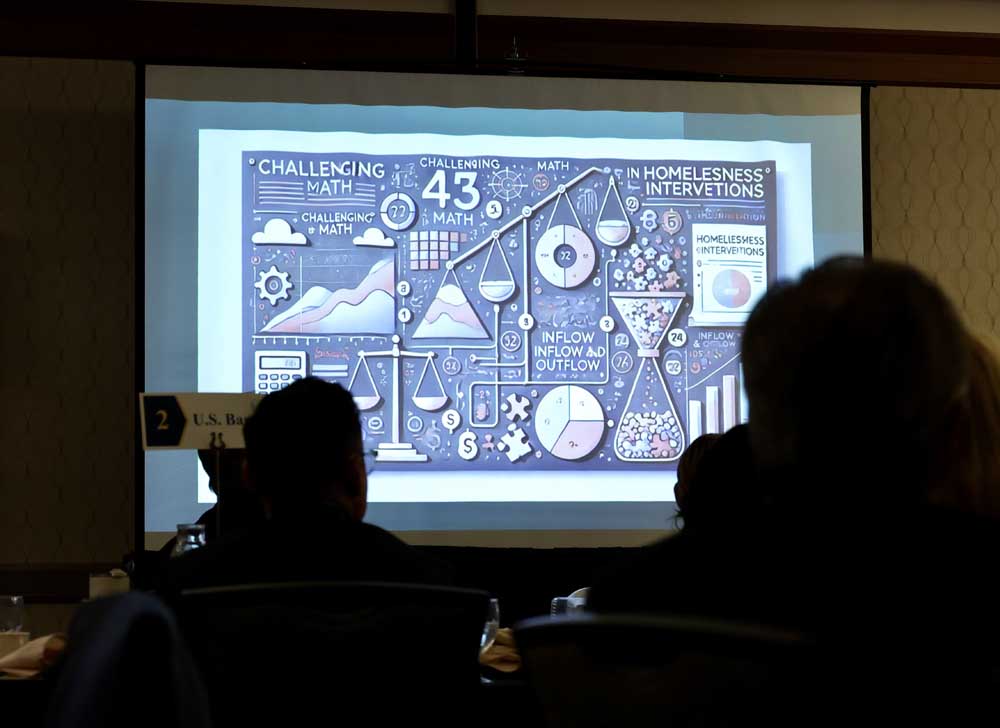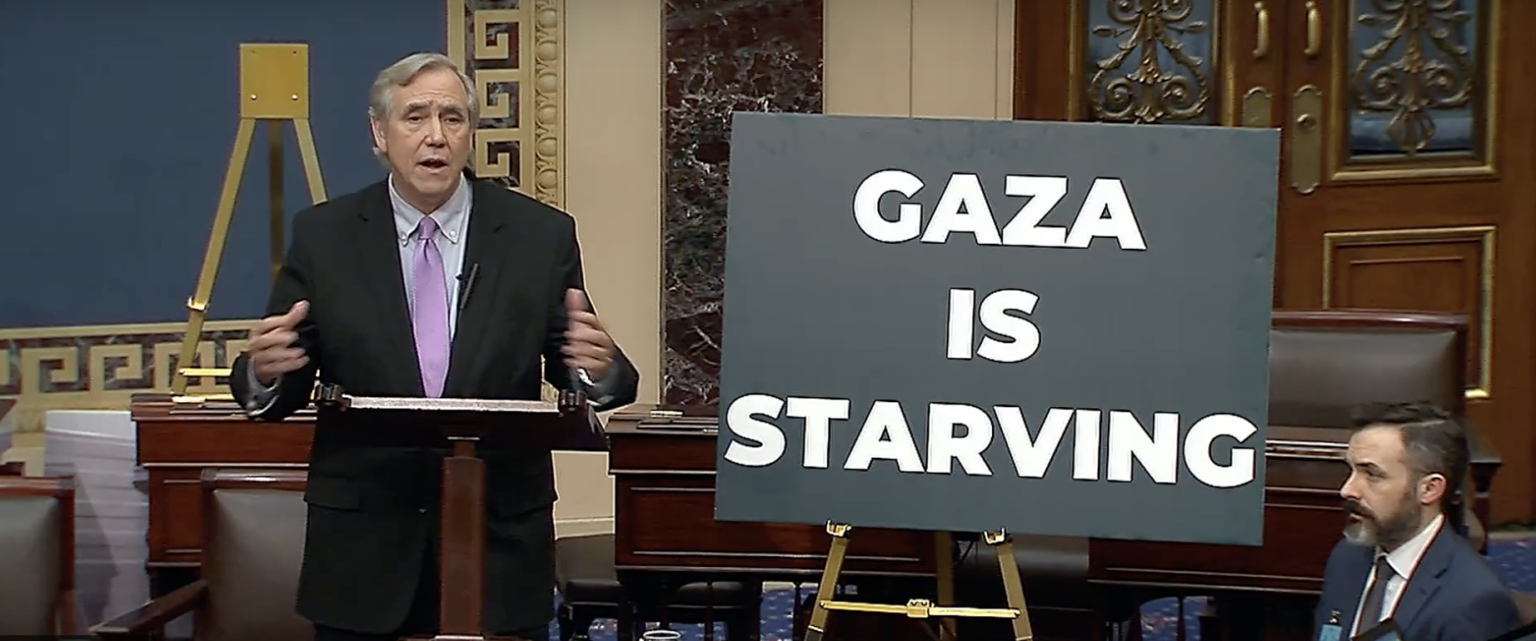Economist: Portland region voters not seeing successes of homeless spending
Published 4:30 am Friday, March 21, 2025

- ECOnorthwest’s John Tapogna explained, in sometimes dizzying detail, why the math is so difficult when it comes to connecting each dollar spent with each homeless Portlander finding shelter. For every 100 homeless people obtaining Supportive Housing Services assistance, perhaps only eight to 15 fewer people will show up on a count of the unsheltered.
Metro, the elected regional government, wants the Portland business community to support extending its 10-year voter-approved Supportive Housing Services tax that helps fund homeless program. It is scheduled to expire in 2031.
Trending
But, as negotiations continue, recently released documents show Multnomah County, the largest recipient of the Metro tax dollars, has violated its own policies about spending them, creating a potential $104 million shortfall that also threatens Portland’s homeless shelter program.
The news makes it appear that the spending is not under control as the Metro Council is considering asking voters in November to extend the tax until 2050. And it broke shortly before the Portland Metro Chamber, the membership organization that represents more than 2,200 area businesses, held a breakfast forum on the future of tax that raised even more questions about whether Metro voters will extend it.
The forum was held on Thursday, March 20, at the Duniway Hotel in Portland. It featured a presentation by John Tapogna, senior policy adviser at the local ECOnorthwest economic consulting firm, who has studied homeless-related issues for years.
Trending
Biggest pot of money
The 1% income tax on larger businesses and higher-income individuals was approved by Metro voters at the May 2020 election. According to Tapogna, it already has become the largest single source of homeless services funding in the region. Although originally projected to raise $250 million per year, the tax brought in $343 million in 2023 before dropping slightly to $335 million last year. It account for 27% of all revenue for homeless services in the region in 2024 — and is expected to soon begin growing again through 2030.
“In a very short period of time, this Supportive Housing Services tax became the most important,” Tapogna said.
Metro collects the money and distributes most of it to Multnomah, Washington and Clackamas counties, which contract with nonprofit social agencies to provide services.
Tapogna present data from Metro that showed the program already has greatly exceeded its original goals. More than 7,200 homeless people already have been placed in housing, compared to 5,000 originally intended to be housed in 10 years. And more than 17,000 evictions have been presented, compared to the original 10,000 goal.
But Tapogna conceded many, if not most, Metro voters are not seeing much progress in reducing visible homelessness.
“People can ask, we’ve spent around one billion dollars on homelessness, why are there still so many tents around Union Station (in Old Town Portland)?” Tapogna said.
Tough nut to crack
The answer is complicated, Tapogna conceded.
Among other things, the
homeless population in the Portland area is still growing because housing has become even more unaffordable since the tax first passed. That is because not enough new housing is being built in the region, Tapona argued. Production collapsed during the pandemic that began in 2020 and has still not recovered.
“Homelessness is a housing problem,” said Tapogna, who said housing construction has slowed so much that not a single multifamily construction permit was fully approved in the city of Portland in 2024.
With the 2030 expiration looming, Tapogna said the SHS is so important, regional voters should not have to choose between the tax ending or being continued with no changes.
“The future of SHS beyond 2030 should not be a binary choice between continuation and elimination. Leaders must shape a sustainable model that aligns with regional values—balancing social responsibility with economic vitality,” Tapogna said.
“Now is the time to forge a long-term funding and policy framework that ensures both stability for vulnerable communities and shared prosperity for the region.”
Multnomah County muddies waters
Multnomah County’s budgeting problem is further complicating Metro’s plans to extend the tax this November.
Multnomah County had trouble spending its share of the funds during the early years of the program, prompting Metro to provide a “corrective action plan” in 2023 to get more services funded faster. County officials said spending increased in 2024 as Metro was beginning to consider asking voters to extend the expiration date, while also lowering the tax rate to win the support of area businesses.
But then, on Friday, Feb. 21, Multnomah County Chair Jessica Vega Pederson unexpectedly announced the county was facing a $104 million shortfall in homeless revenues. During a hastily called press conference, she asked for $55 million from the 2025 Oregon Legislature and $30 million from Metro to close the gap.
“With this grim budget outlook, Multnomah County cannot do this alone,” Vega Pederson said.
Oregon Gov. Tina Kotek and Metro President Lynn Peterson both said they were shocked by the news, which made it look like SHS spending was out of control, even though Washington and Clackamas counties had not reported any problems.
Portland Mayor Keith Wilson also said he was upset because he had been counting on the county to take over operation of the city’s homeless shelters, something that suddenly was very much in question.
Kotek and Peterson promptly sent Vega Pederson a letter seeking details on Multnomah County’s homeless spending. The June 14 response revealed the county had violated its own policies by spending more than $100 million intended for one-time purposes, like opening homeless shelters, for on-going purposes, like operating them. The documents revealed that nearly every portion of the county’s homeless services budget was funded at least in part by one-time funds.
That violated the county’s own budgeting policies.
“Unrestricted one-time-only resources present organizations with temptations that are hard to resist,” a county budget document reads. “In the short run it appears more beneficial to allocate such resources to the highest priority public service that would otherwise be unfunded than to restrict them to costs associated with one-time needs and those that will not recur in following years. However, the result of this practice is to expand operational levels and public expectations beyond the capacity of the organization to generate continuing funding.”
“This inevitably produces shortfalls and crises.”
The Oregonian has subsequently reported the county could reduce the shortfall to $70 million by not allocating additional revenues to reserve funds. It is unclear whether the county agrees. The Multnomah County Commission has only recently opened discussions on next year’s budget, which must be balanced before it takes effect on July 1.
“In a very short period of time, this Supportive Housing Services tax became the most important.”
John Tapogna, ECOnorthwest







